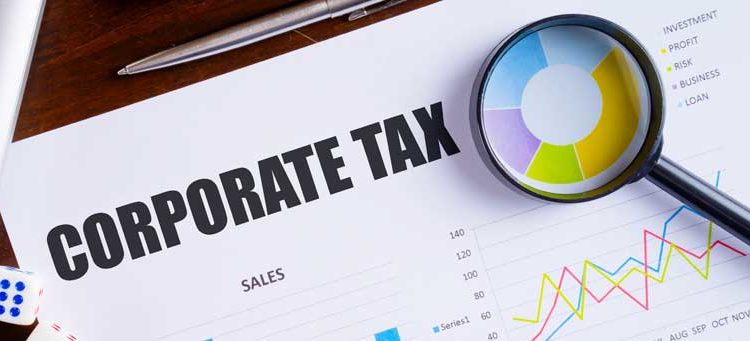Lowering corporate tax doesn’t boost foreign investment
Tax cuts have been the dividing line between the two finalists in the Conservative Party leadership contest in the UK, the winner of which will become the country’s next prime minister. Both Liz Truss and Rishi Sunak want to lower taxes, but they disagree about when those tax cuts should be introduced.
Frontrunner Truss is the candidate who has promised to slash a range of taxes to boost UK growth, which is set to be the lowest of all G7 countries in 2023, according to the International Monetary Fund (IMF). Among her pledges is to scrap a planned increase in the UK’s headline corporation tax rate from 19% to 25% from April 2023. Truss says this move will incentivise more investment by companies.
Evidence to support the economic benefits of Truss’s plans is thin on the ground, however. Even if keeping corporation tax low did encourage domestic companies to invest more, these investments would, in nature, be inflationary at a time when inflation is widely seen as the biggest economic challenge facing the UK and many other countries.
Aside from the impact on domestic companies, would her plans help attract greater foreign direct investment (FDI) into the UK? Along with the corporate tax reversal, Truss has also promised “full-fat free ports”, which presumably would allow companies operating in them to pay even less corporate tax.
But do low corporate tax rates lead to higher FDI? The evidence suggests that they don’t.
“The effectiveness of tax incentives as a tool to generate economic growth has been widely questioned,” says Emilio Pineda, chief of the fiscal and municipal management division at the Inter-American Development Bank, citing research conducted by the IMF in 2015 and the University of Florida in 2013.
“In many cases these are redundant elements” he adds. “The investment would have been made even without an incentive and it has not been shown that the incentives necessarily increase foreign investment, nor that it always generates growth.”
UK corporate tax rate already low
The UK has long been one of the most popular destinations for FDI in the world, thanks to a highly educated population, good quality of life, strong legal protections for companies, business-friendly regulations, decent infrastructure, a world-leading financial sector and global trading links.
Only the US and Germany recorded more inward FDI projects in 2021 than the UK, according to the UN Conference on Trade and Development (UNCTAD), yet FDI inflows into the UK have been depressed in recent years.
While total FDI inflows to the UK rose slightly in 2021, to $27.5bn, according to UNCTAD, this remained lower than pre-Covid levels ($45.5bn in 2019). Between 2011 and 2019, there was only one year (2014) when total inflows fell below $30bn. Since the UK lowered its corporate tax rate to 19% in 2017, total FDI inflows have been on a downward trend.
So lowering the UK’s headline corporate tax rate has not led to an increase in FDI, with other factors, not least Brexit and the Covid-19 pandemic, having a serious dampening impact on investment.
No evidence internationally of a link between corporate tax rates and FDI
It is not just in the UK where a link between corporate tax rates and inward FDI is tenuous at best. When looking at the headline corporate tax rates of the countries that attracted the most FDI projects in 2021, only a small minority have a rate lower than the UK.
There is, if anything, a correlation between higher corporate tax rates and high FDI inflows. That does not prove causation but likely means countries that are able to attract high inward investment are able to raise corporate tax rates to increase the economic benefit to the host country.
Of the ten countries that attracted the greatest number of FDI projects in 2021, only Singapore has a headline rate below the UK (although few companies in the United Arab Emirates [UAE] pay the headline rate, and many pay no corporate tax at all).
Not all companies operate at the same margins, of course, and lowering corporate taxes is more important to some sectors than others. In the countries with the lowest headline corporate tax rates, tourism and services attract the most FDI.
Both Truss and Sunak have committed to the UK government’s levelling up policy, yet the investment needed to close regional economic disparities in sectors such as advanced engineering, supply chains, emerging technologies and infrastructure is not the type driven by low tax rates.
“Tax incentives also distort resource allocation,” says Pineda. “Discrimination in favour of some and against other investment implies that taxes, rather than productivity differences, determine resource allocation. This distortion reduces average productivity and lowers income per capita.”
UK out of step with global tax trends
The eagerness of Truss and other candidates for the Conservative leadership to lower corporation tax to boost growth is not just unsupported by evidence but out of step with the direction of travel for other rich countries.
The OECD aims to introduce a minimum global corporate tax rate of 15% by 2024 to end the race-to-the-bottom competition over business taxes. While the impact of this initiative will be most felt in developing countries, which are more likely to compete on tax rates, many wealthy countries have responded by planning increases in their corporate tax rates.
President Joe Biden is planning to increase the federal corporate tax rate in the US from 21% to 28%, while the historically low-to-no-tax UAE will set a new minimum corporate tax of 9% from 2023, which will apply to most companies.
With countries set to compete less on corporate tax rates, the UK is unlikely to attract much extra investment by keeping its rate low but would definitely miss out on tax receipts.
John Peterson, one of the architects of the Global Anti-Base Erosion Rules from the OECD, told Investment Monitor that the new minimum tax rules are expected to generate around $150bn in additional global tax revenues per year.
“This includes not only the revenues expected from the application of the rules themselves but also additional corporate income tax revenues expected from the resulting reduction in profit-shifting activity as a consequence of introducing the rules,” he says.
Truss is the favourite to become the next prime minister of the UK, in part thanks to how her promises to cut taxes and boost growth have been welcomed by Conservative Party members. However, if she wants to increase FDI to the UK, she would do better to focus on the main drivers of FDI and improving the country’s skills base, reducing Brexit-related frictions to trade, upgrading infrastructure outside of London and working on ways to bring down inflation.
If she needed to find funding for these initiatives, she could always raise corporate tax rates, at least to a level similar to those markets the UK competes with for FDI.








